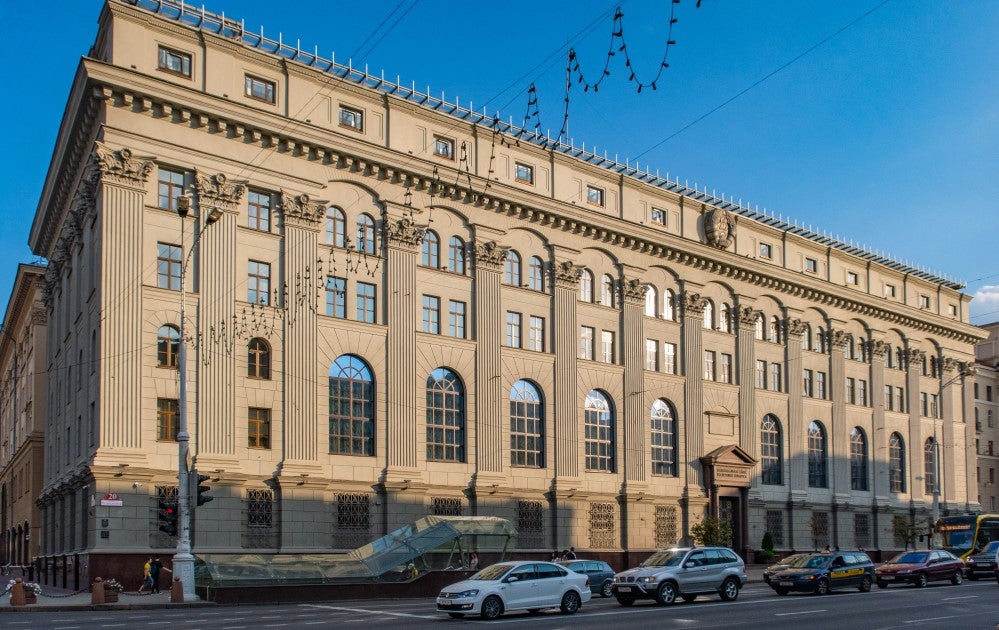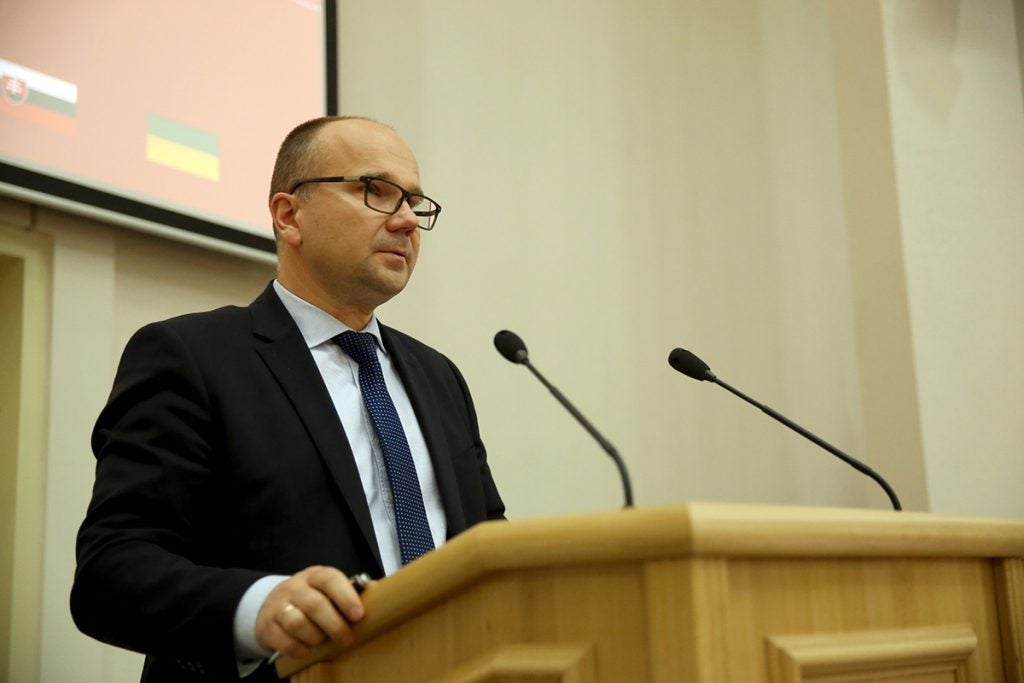
The Belarus leasing sector, which was growing in the pre-Covid years, has been dealt a blow as Western economic sanctions, imposed in the wake of the Kremlin’s invasion of Ukraine, have begun to take effect against an already difficult economic backdrop.
The aftermath of the 24 February 2022 invasion has seen the Belarus domestic market suffer currency fluctuations, the suspension of bank lending, disruptions to the supply of commodities, a drop in the availability of vehicles, and issues with the supply of high-tech equipment.
In the last month, the UK government unveiled a fresh round of sanctions that include banning the import of materials from Belarus and blocking exports to Belarus from Britain of banknotes and machinery, which will serve as a further blow to the leasing sector.
In 2022, the total volume of new business for the Belarus leasing sector decreased by 22.69%, according to the Association of Lessors of Belarus.
This fall contrasts with the last few years which saw growth of +64% in 2017, +55% in 2018, +20% in 2019, -8.79% in 2020, and +22% in 2021. The years 2020 and 2021 were also marred by the outbreak of Covid-19.
This year's official statistics have not yet been published, but according to some Belarus media reports, continuing decline is expected.
How well do you really know your competitors?
Access the most comprehensive Company Profiles on the market, powered by GlobalData. Save hours of research. Gain competitive edge.

Thank you!
Your download email will arrive shortly
Not ready to buy yet? Download a free sample
We are confident about the unique quality of our Company Profiles. However, we want you to make the most beneficial decision for your business, so we offer a free sample that you can download by submitting the below form
By GlobalDataLeasing portfolio
On 1 January 2023, the total leasing portfolio value was approximately BYN 7.77 billion (Belarusian ruble) (£2.4 billion), which was 5.19% higher than for the same time in 2022. Also, more than 157,000 leasing contracts are currently in force, which is 44.28% better when compared with the same period last year, according to the Association of Lessors of Belarus.
Increasing interest rates and calls for debt restructuring are driving leasing portfolio growth across Belarus, local experts say.
This year the total volume of new business of Belarusian leasing organisations and banks reached BYN 2.514 billion (£780 million), 22.69% less than in 2022. Last year, leasing companies signed 94,571 contracts which are 16.64% less than in 2021. In value terms, volumes decreased by 16.64% to BYN 3.988 billion.
The Belarusian financial lease market is geared towards investment leasing driven by a rise in signed contracts, itself underpinned by the real estate leasing market. In 2022, the average business-to-consumer leasing agreement was valued at BYN 9,100, while business-to-business contracts were valued at BYN 298,138. According to the Belarus Ilex business paper, the average cost of leasing contracts is growing in the investment segment.
The reasons behind this are inflationary and involve devaluation processes in the country, the lengthening of contract terms, and higher interest charges on businesses and individuals for expensively leased items.
The most leased items in Belarus are vehicles followed by machinery and equipment. The share of the first is 48.31% of the total value of contracts, while the second is 45.09%. The share of property leasing, buildings and structures, is 2.7%, while other items (durable goods - household appliances, furniture, etc) is 3.9%.
According to Andrey Kochergin, Chairman of the Belarus Association of Lessors, the constraining factors for the development of the industry are the high cost of credit, difficulties with loan approvals and high investment risks.

“The collapse that happened in the domestic car market in 2022 has not yet been overcome. Now there is some recovery underway due to the active supply of used cars and parallel imports, however, it is still far from the pre-crisis level. In such turbulent times, the demand for buildings and other property remains also low", Kochergin said.
In 2022, leasing company profits grew by 34% to 273.6 million rubles, while overdue debts down from 2.31% to 2.13% YoY of the total liabilities of lessees. According to a report by the Association of Lessors, this reflects high-stress levels in the Belarus leasing industry.
Legislative reform
On the horizon, market participants are waiting for the approval of the Leasing Activities Bill, designed to bring forward innovations that account for changes in the economy and law enforcement practice.

One of the changes proposed in the Bill is the expansion of the regulatory functions of the Belarus National Bank that will see it control financial standards for leasing organisations, including the minimum size of authorised capital and the creation of a reserve, determine the maximum level of the debt burden of the lessee, and set the qualification requirements for the head of an authorised company (for example, the conditions and procedure for attestation) etc.
Sergei Shimanovich, the director of the Association of Lessors of Belarus, says that regulatory reform is necessary to lift creditor confidence and drive new business growth.
Shimanovich said: "The Association has always supported limiting regulation of the banking system and the leasing sector. It is necessary to take into account the specifics of a finance lease, as it is not a credit mechanism.

He said, while the banks have size on their side, they can often cope with the demands from the regulatory burden imposed by the government, but "the same cannot be said for leasing organisations, many of which are SMEs. Yes, the country has large companies that carry out large-volume transactions and influence the economy. But there are also many small companies with only five to seven people on staff.”
He noted that draft documents of the parliamentary Bill also include a provision for a leaseback facility.

Dmitry Lapko, the deputy chairman of the Belarus National Bank, says the potential to re-transfer property to a leasing arrangement will help solve several issues relevant to the leasing industry and the real estate sector of the Belarus economy.
Overall, in the current year, businesses are hoping the economic outlook will improve and that the inclusion of a leaseback arrangement in the law will go some way to bring flexibility and normality to the market.
Leasing in key role on sidelines of Belarusian-Uzbek agrarian forum
US sanctions target Russia's state-backed leasing companies







